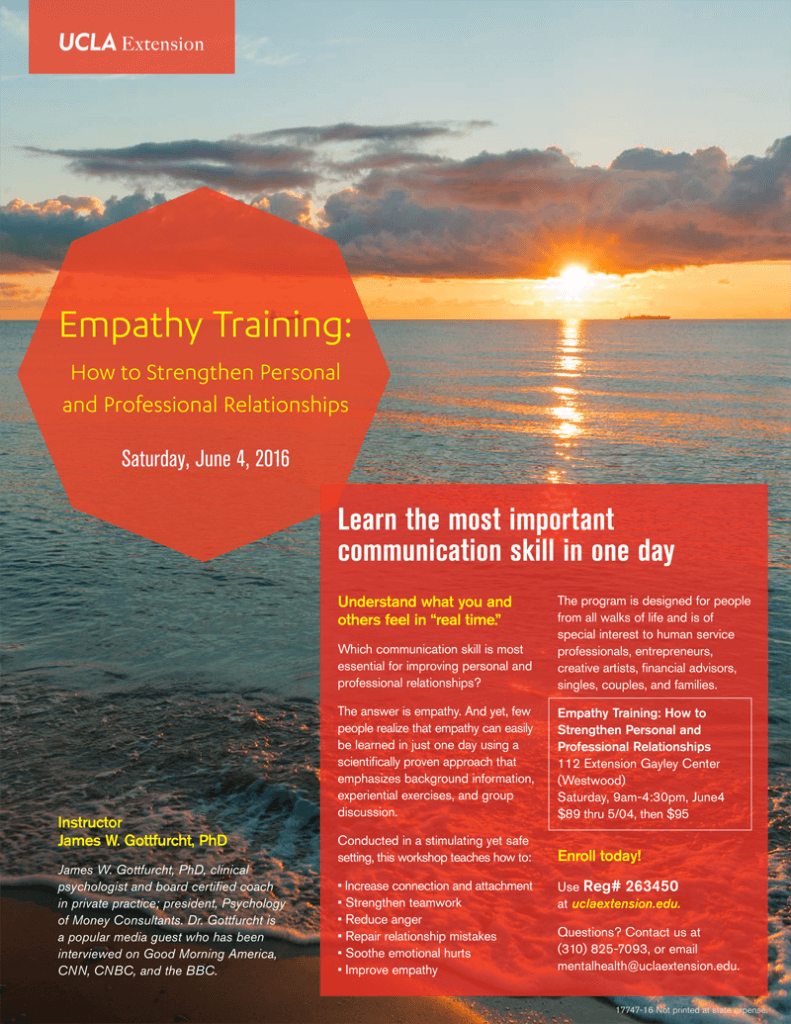



In case you missed our last Blog Post, the topic was psychological bandwidth. We define it as the amount of intellectual, emotional, physical and spiritual energy we have available to think creatively and make effective decisions.
Certain feelings use up a lot of psychological bandwidth. Feelings of loss, betrayal, fear, worry, stress, helplessness or hopelessness are prime examples. According to psychodynamic therapy, loss is the most traumatic experience for a human being. And the most traumatic type of loss is loss of a love relationship. Given that money has so many significant symbolic and practical meanings in life, loss of money runs a close second as a cause of trauma. And for some of our clients, loss of money is more traumatic than loss of love!
Shame and guilt are two deeper feelings that can consume huge amounts of psychological bandwidth. They can cause depression, self-punishment and even self-sabotage. Although shame or guilt may require therapy to resolve, there are still many things you can do to navigate a narrow psychological bandwidth or replenish it
Here are two major strategies:
Here is a short list of activities to relieve stress and restore bandwidth:
See how many more ideas you can come up with. Try them out, and discover what works best for you.
If you want to learn more activities and become more skilled at regulating your psychological bandwidth, we invite you to take Dr. Gotfurcht’s annual UCLA Extension experiential workshop called Psychology of Money: How to Strengthen a Money Mindset & Increase Financial Success. It takes place on Saturday, January 24. Early bird enrollment is only $85.
The next Blog Post will feature a BBC interview called “How to Win the Lottery.” Although we do not play the lottery, the information may include some surprises (and life lessons) for all of us.
Workshop Description:
When a person’s conscious and subconscious minds are in conflict, guess which one wins the psychological tug of war?
To understand the importance of the answer to this question, we would like to invite you to take a 1-day workshop Dr. Gottfurcht is teaching this January, Psychology of Money: How to Strengthen a Money Mindset & Increase Financial Success.
This experiential and interactive workshop helps to uncover hidden beliefs that could be sabotaging financial success and provides skills for changing them.
Learn how to apply psychological/financial tools based upon research, clinical findings and case stories to empower your relationship with money.
Topics include:
Sign up today. Looking forward to seeing you in January!
James W. Gottfurcht, PhD, Psychologist in private practice; Board Certified Coach; President, Psychology of Money Consultants.
Feel free to forward this email to any interested parties.
You are receiving this email because you requested to stay informed about events and classes in your area. If you prefer not to receive notices like this in the future, email psychmoney@aol.com and ask to be removed. Do not contact UCLA Extension to opt out. To request a catalog and to receive updates from UCLA Extension, please visit UCLA Extension’s website.
Search for

Recent Posts